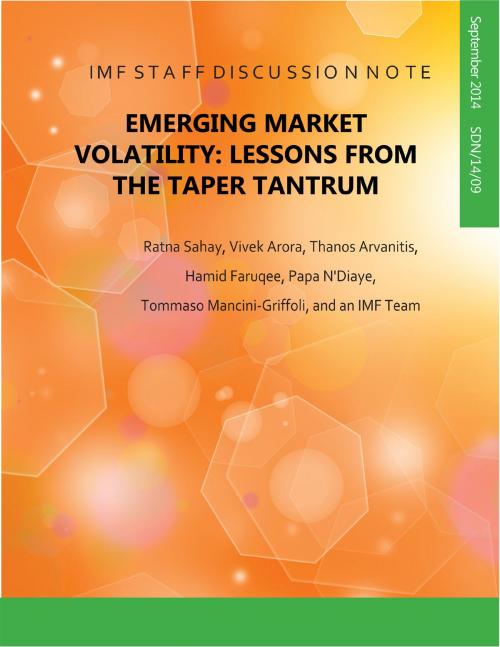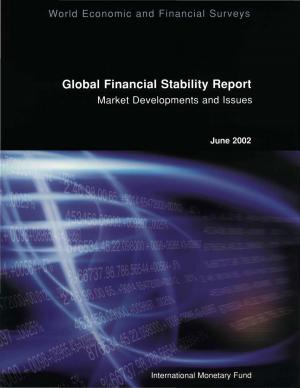Emerging Market Volatility
Lessons from The Taper Tantrum
Business & Finance, Economics, Money & Monetary Policy, Macroeconomics| Author: | Ratna Sahay, Vivek B. Arora, Athanasios V Arvanitis, Hamid Faruqee, Papa N'Diaye, Tommaso Mancini Griffoli | ISBN: | 9781484356005 |
| Publisher: | INTERNATIONAL MONETARY FUND | Publication: | October 2, 2014 |
| Imprint: | Language: | English |
| Author: | Ratna Sahay, Vivek B. Arora, Athanasios V Arvanitis, Hamid Faruqee, Papa N'Diaye, Tommaso Mancini Griffoli |
| ISBN: | 9781484356005 |
| Publisher: | INTERNATIONAL MONETARY FUND |
| Publication: | October 2, 2014 |
| Imprint: | |
| Language: | English |
Accommodative monetary policies in advanced economies have spurred increased capital inflows into emerging markets since the global financial crisis. Starting in May 2013, when the Federal Reserve publicly discussed its plans for tapering unconventional monetary policies, these emerging markets have experienced financial turbulence at the same that their domestic economic activity has slowed. This paper examines their experiences and policy responses and draws broad policy lessons. For emerging markets, good macroeconomic fundamentals matter, and early and decisive measures to strengthen macroeconomic policies and reduce vulnerabilities help dampen market reactions to external shocks. For advanced economies, clear and effective communication about the exit from unconventional monetary policy can and did help later to reduce the risk of excessive market volatility. And for the global community, enhanced global cooperation, including a strong global financial safety net, offers emerging markets effective protection against excessive volatility.
Accommodative monetary policies in advanced economies have spurred increased capital inflows into emerging markets since the global financial crisis. Starting in May 2013, when the Federal Reserve publicly discussed its plans for tapering unconventional monetary policies, these emerging markets have experienced financial turbulence at the same that their domestic economic activity has slowed. This paper examines their experiences and policy responses and draws broad policy lessons. For emerging markets, good macroeconomic fundamentals matter, and early and decisive measures to strengthen macroeconomic policies and reduce vulnerabilities help dampen market reactions to external shocks. For advanced economies, clear and effective communication about the exit from unconventional monetary policy can and did help later to reduce the risk of excessive market volatility. And for the global community, enhanced global cooperation, including a strong global financial safety net, offers emerging markets effective protection against excessive volatility.















